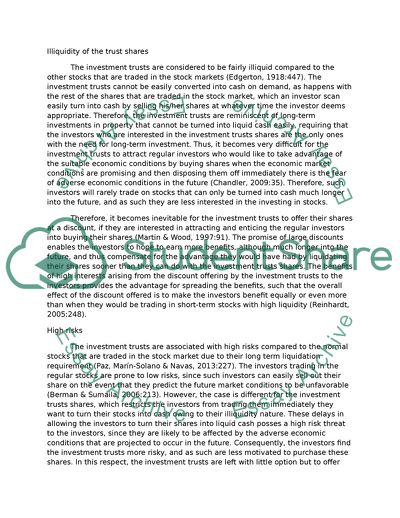Cite this document
(Why do investment trusts often trade at a discount Essay, n.d.)
Why do investment trusts often trade at a discount Essay. https://studentshare.org/finance-accounting/1850243-why-do-investment-trusts-often-trade-at-a-discount
Why do investment trusts often trade at a discount Essay. https://studentshare.org/finance-accounting/1850243-why-do-investment-trusts-often-trade-at-a-discount
(Why Do Investment Trusts Often Trade at a Discount Essay)
Why Do Investment Trusts Often Trade at a Discount Essay. https://studentshare.org/finance-accounting/1850243-why-do-investment-trusts-often-trade-at-a-discount.
Why Do Investment Trusts Often Trade at a Discount Essay. https://studentshare.org/finance-accounting/1850243-why-do-investment-trusts-often-trade-at-a-discount.
“Why Do Investment Trusts Often Trade at a Discount Essay”. https://studentshare.org/finance-accounting/1850243-why-do-investment-trusts-often-trade-at-a-discount.


